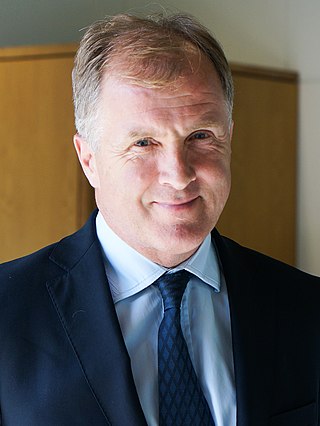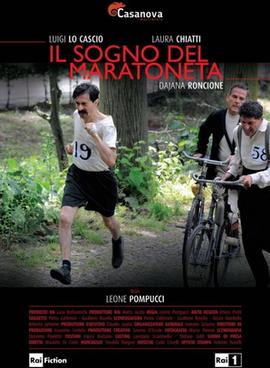
The 1908 Summer Olympics were an international multi-sport event held in London, England, from 27 April to 31 October 1908. The 1908 Games were originally scheduled to be held in Rome, but were relocated on financial grounds following the violent eruption of Mount Vesuvius in 1906, which claimed over 100 lives; Rome eventually hosted the Games in 1960.

John Joseph Hayes was an American athlete, a member of the Irish American Athletic Club, and winner of the marathon race at the 1908 Summer Olympics. Hayes' Olympic victory contributed to the early growth of long-distance running and marathoning in the United States. He was also the first man to win a marathon at the now official standard distance of 26 miles 385 yards when Olympic officials lengthened the distance to put the finish line in front of the Royal Box.

Major Dr. Thomas Joseph Crean, was an Irish rugby union player, British Army soldier and doctor. During the Second Boer War, while serving with the Imperial Light Horse, he was awarded the Victoria Cross. In 1902, he was made an Honorary Fellow of the Royal College of Surgeons. During the First World War he served with the Royal Army Medical Corps and was awarded the Distinguished Service Order.

The men's marathon race of the 1908 Summer Olympics took place in London on 24 July 1908. Johnny Hayes won after Dorando Pietri was disqualified for having received assistance before the finish line. For the first time in an Olympic marathon, the distance was 26 mi 385 yd (42.195 km), which would become the standard distance in 1921. 75 competitors entered the race, of whom 55 from 16 nations started, with 27 from 11 nations finishing. NOCs could enter up to 12 athletes. Charles Hefferon's silver medal earned South Africa its first Olympic marathon medal.
The Leinster Senior Cup is a major rugby competition in Ireland, involving all senior rugby clubs in Leinster, i.e., clubs from Leinster competing in the All-Ireland League. From 2006 until 2016 it was known as the Leinster Senior League Cup during the period when the Leinster Senior League had been discontinued, but reverted to its traditional name for the 2016–17 season upon the revival of the Senior League. From 2011 to 2016 only the top senior teams competed and those in the lower divisions of the All-Ireland League competed for the Leinster Senior League Shield.

Italy competed at the 1908 Summer Olympics in London, England. It was the third appearance of the European nation, which had not competed at the 1904 Summer Olympics. It was originally going to host the Games, but the eruption of Mount Vesuvius meant the UK hosted them.
Charles Archer Hefferon was an athlete representing South Africa who competed mainly in the marathon. Hefferon was born in Newbury, Berkshire, England, to an Irish father and an English mother but moved with his family to Canada and was raised on a farm near Brandon, Manitoba. He settled in South Africa after fighting in the Boer War, where he worked as a prison officer in Bloemfontein.

Dorando Pietri was an Italian long-distance runner. He finished first in the marathon at the 1908 Summer Olympics in London but was subsequently disqualified.

Hugh Patrick MacNeill OBE, commonly known as Hugo MacNeill, is a former rugby union player who played for Ireland, Leinster, the French Barbarians and the British and Irish Lions during the 1980s. During the late 1970s he also played Football for University College Dublin and Dublin University. After retiring from sport, MacNeill went on to serve as a director for Goldman Sachs. He has also worked as a rugby pundit for TV3 and BBC Radio 5 Live.
Michael Anthony Mary Quinn is a former rugby union footballer who played international rugby as a fly-half for Ireland. He played schools rugby for Newbridge College and captained them to victory in the 1970 Schools Cup Final over Blackrock College RFC. He then moved on to play senior rugby for Lansdowne Football Club before earning a call up to the Ireland national team. In 1976 he was a member of the Ireland squad that went on tour of New Zealand and Fiji.
The 1898 Home Nations Championship was the sixteenth series of the rugby union Home Nations Championship. Five matches were played between 5 February and 2 April 1898. It was contested by England, Ireland, Scotland and Wales.

Lawrence 'Larry' Quinlivan Bulger was an Irish rugby union player, athlete and doctor. Bulger played international rugby for Ireland and in 1896 was chosen to represent a British Isles XV in their tour of South Africa. Bulger, who was nicknamed "Fat Cupid", was described as an elusive runner and a devastating tackler, one of Ireland's outstanding players.
Daniel Frederick Rambaut was an Irish psychiatrist, one of the pioneers of modern psychiatry, and an Ireland rugby union international.
Thure Johansson was a Swedish long-distance runner who is credited by the International Association of Athletics Federations for setting a world's best of 2:40:34 in the marathon on August 31, 1909. Johansson's record was reportedly set on a 368-meter indoor track at the Idrottsparken Velodrome Marathon in Stockholm, Sweden.

The men's marathon event at the 1948 Summer Olympic Games took place on August 7. Forty-one athletes from 21 nations competed. The maximum number of athletes per nation had been set at 3 since the 1930 Olympic Congress. The race was won by Delfo Cabrera of Argentina, the nation's second victory in three Games. Tom Richards's silver medal put Great Britain on the podium for the third time in a row, while Étienne Gailly earned Belgium's first marathon medal with his bronze.

Il sogno del maratoneta is an Italian TV movie produced by RAI television. It is directed by Leone Pompucci and stars Luigi Lo Cascio and Laura Chiatti. It was aired on television as a two-parter. It is an adaptation of the homonym book by Giuseppe Pederiali.
Daniel Delany Bulger was a leading Irish athlete. Along with his younger brothers, Michael Joseph Bulger (1867–1938) and Lawrence Bulger (1870–1928), he was prominent in the Irish sporting world in the late 19th century. Daniel was one of the 79 delegates who attended the Congress of the Sorbonne in Paris in 1894 that lit the flame of the Olympic Games of the Modern Era in Athens in 1896.

Thomas Patrick Morrissey was an American long-distance runner who won the Boston Marathon in 1908.
Pericle Pagliani was an Italian long-distance runner who competed in the men's 5 miles and men's 3 miles team race at the 1908 Summer Olympics.
The Dublin Hospitals Rugby Cup is a rugby union competition contested by the teaching hospitals in Dublin since 1881. The competition has a claim to the oldest rugby union competition in the world. The United Hospitals Cup in London was started 6 years earlier, but 12 years were not played during the periods of World War I and World War II.










